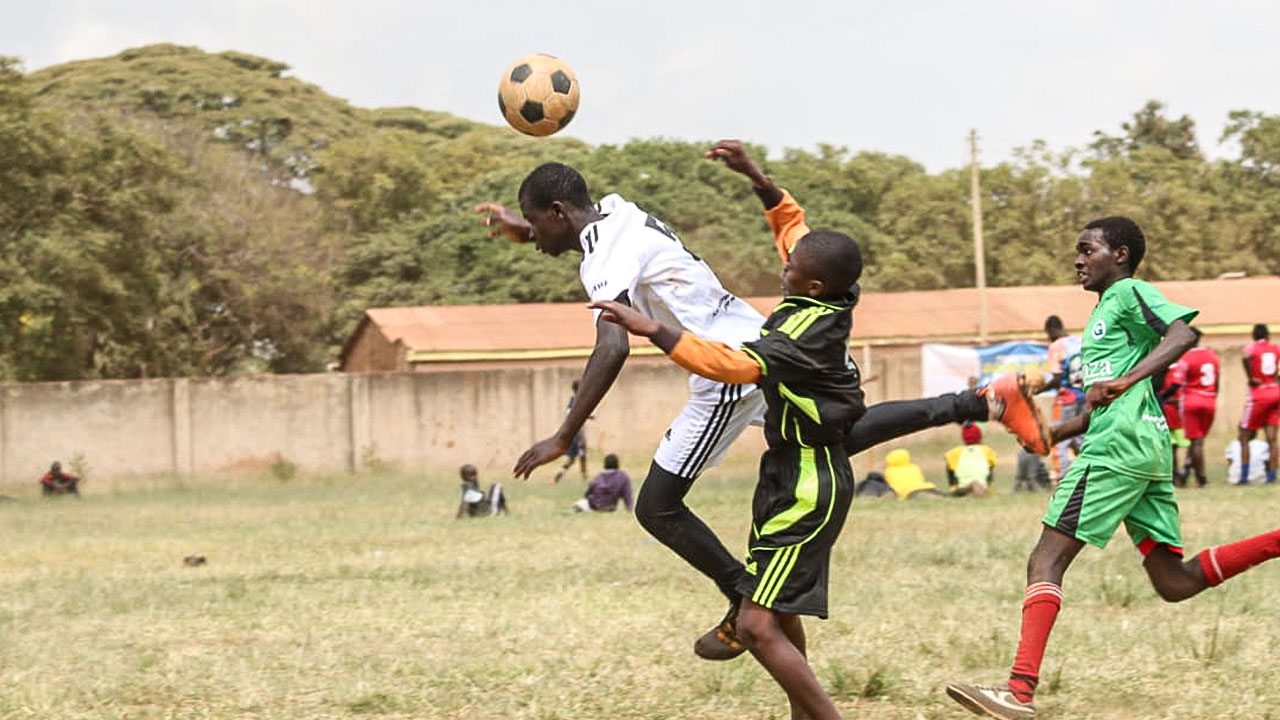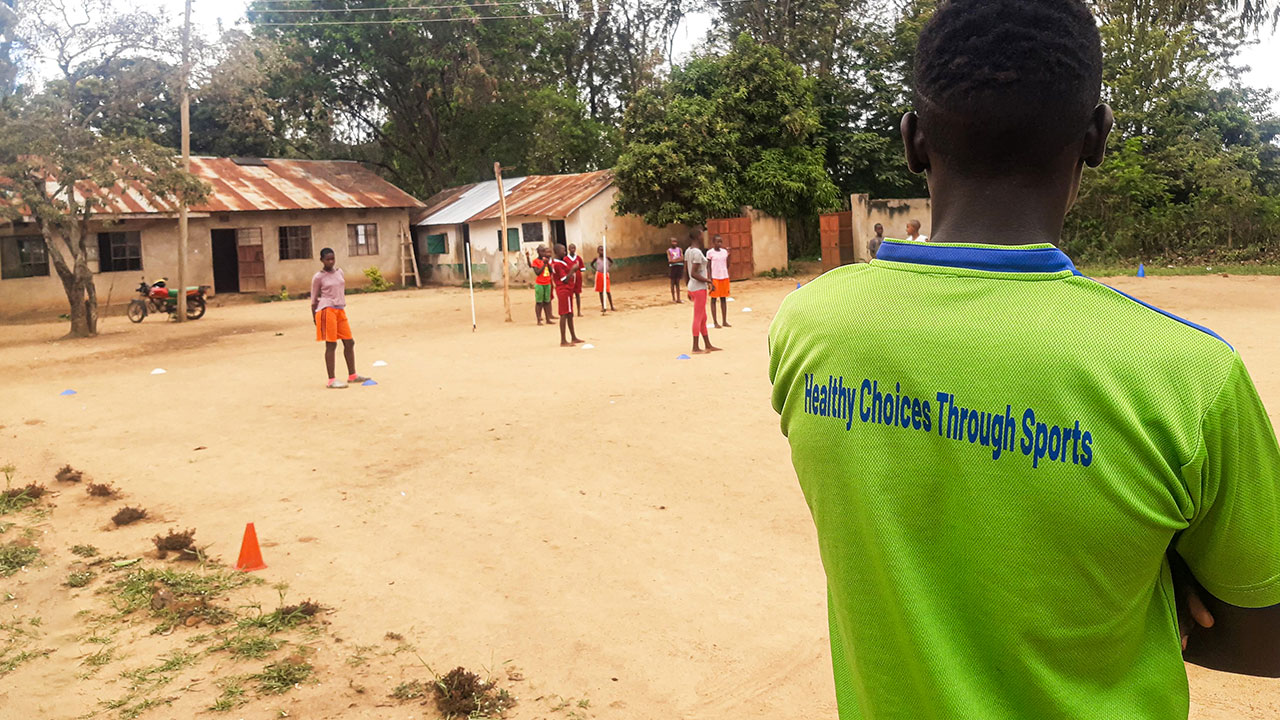Kenya is a fascinating country with a long history, breathtaking landscapes and a diverse culture.
The popular travel destination has an eventful history leading up to independence in 1964 and has seen many positive changes in recent years. Kenya is considered a progressive country with one of the best constitutions in the world, and many international organisations have a presence or headquarters in Kenya.
However, Kenya still faces a number of challenges such as poverty and densely populated slums. It is therefore advisable to inform yourself about the current political and social background before your volunteer placement. Familiarise yourself with the climatic conditions, as the weather can vary greatly depending on the region. With a mix of coastal and highland climates, it can be warm, hot or even cool at different times of the year.
A potpourri of ethnicities, languages and traditions
Especially in rural Kenya, your host family will provide you with the best opportunity to learn about local lifestyles and customs and gain a better understanding of the culture and traditions. Cultural exchange is a very important part of volunteering abroad, and by working as a sports volunteer you can bring about positive change, especially in disadvantaged regions of Kenya.
Kenya is home to more than 40 different ethnic groups. Each group has its own identity, rituals, dances and stories. Kenyan society is a colourful patchwork of Kikuyu, Luhya, Luo, Kamba, Maasai, Somali and many other communities.
Traditions and rituals are not only deeply rooted in the dancing and leaping Maasai, but family tradition is also at the heart of Kenyan society. Many people attach great importance to family ties and solidarity. Older family members are held in high esteem and their wisdom and advice is highly valued. You should respect this importance and value when living with your host family.
Even outside of your volunteer work, communal activities such as celebrations or ceremonies are important to the family and the community and foster a strong sense of community. Kenyans are generally very hospitable and proud to share their culture with others. As a guest of your project or host family, you should be prepared to dance along or actively participate in community activities. You will certainly enjoy it.
Despite the challenges such as poverty, unemployment, modernisation and inter-ethnic tensions, Kenya is a warm-hearted country and many people strive to protect and preserve its rich cultural diversity. Let yourself be carried away, let yourself drift, and you may suddenly see things in a different light.

In addition to English, the official language, over 50 different languages and dialects are spoken. After English, Swahili is the most important and widely spoken language in the country, spoken by over 60% of the population. It serves as a lingua franca between the different ethnic groups. It is therefore not only a language but also an important means of political and cultural communication within Kenya.
As a volunteer, it is always an advantage to learn a few words or phrases in Swahili. Not only will this make communication easier and help you in your daily work at the sports project, but it will also boost your self-confidence as a "newcomer". Asante sana - Thank you!
Living as a volunteer with a Kenyan host family
In Kenya, you will usually be welcomed as a member of the family by your host family. They also treat their guests as members of the family and are keen to ensure that foreign volunteers integrate as well as possible. Be open to conversation and take part in their lives outside of your project work.
Your project, which is responsible for selecting host families, will try to match your needs with those of the host family. Are there any language barriers, do you prefer a certain type of food during your stay? There are many questions and mutual expectations that should be discussed in advance. That’s why we try to find out as much as possible about you in our interview.
Your host family will often eat together, which is a great opportunity to get to know not only the local cuisine, but also your new family members. Traditional dishes, such as ugali, a porridge made from maize flour with various side dishes, are often eaten with the hands. It is therefore important to pay attention to your personal hygiene and to wash your hands before each meal.
It is customary to say thank you after a meal. It does not matter if you helped to cook or not. The cook will appreciate it and it is simply a sign of respect. In general, it is very important to treat older family members with respect. When introducing yourself to new people, it is customary to greet the elders first. In general, politeness and friendliness is the best way to gain recognition and respect, both in everyday life and in conflict situations.
Children living in the household are usually involved in household chores. Of course, there are “disagreements” here and there about who has to do what. In principle, it is no different from European families. Even if you are a guest, show your willingness to help with everyday tasks in a spirit of community. Ask what you can do or just get active.
But be aware of how the family members react. Certain things are often only for certain people or can only be done by certain people. Find out and talk about this.
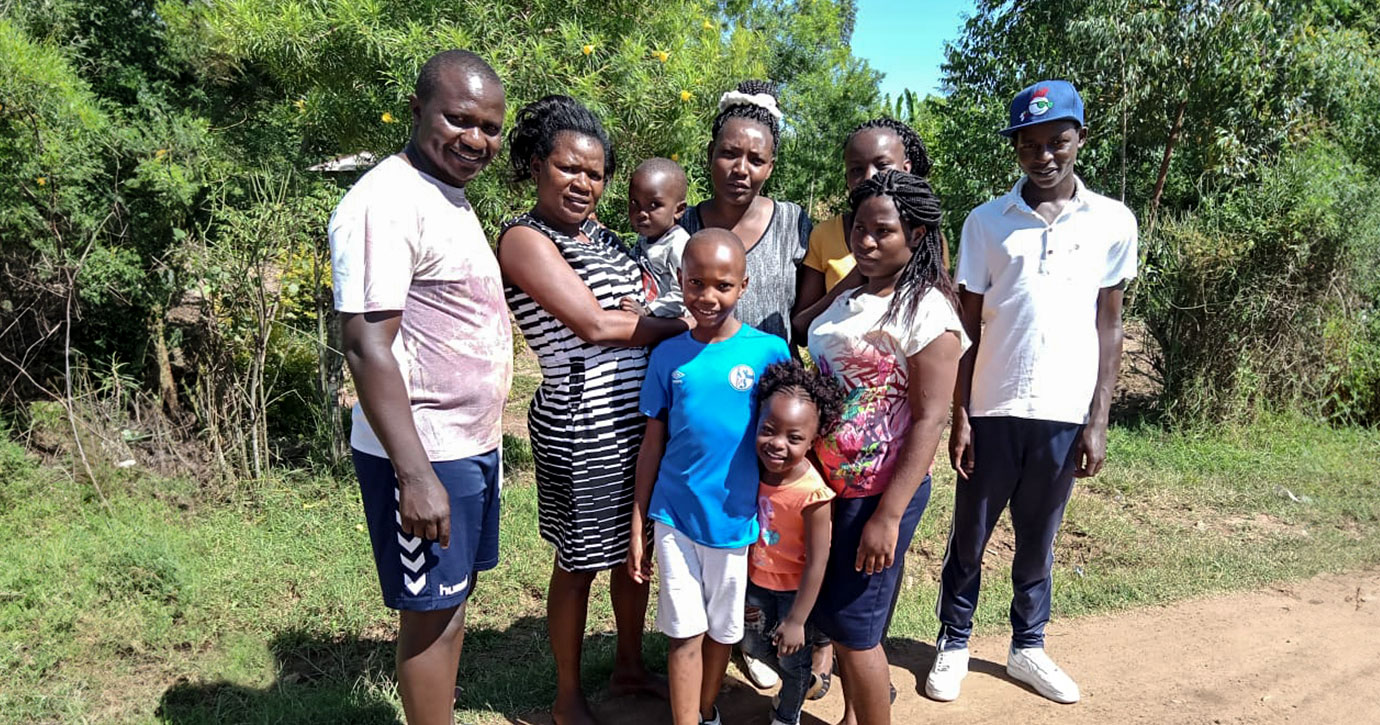
They may offer to do your laundry. However, in Kenya this is often still done by hand and everyone usually washes their own underwear. Make sure you don't put your underwear in with the regular laundry as this can be seen as disrespectful. If you are unsure, always ask before you do anything. This builds trust and avoids misunderstandings.
Despite all the hospitality and openness, there are a few things you should be aware of when volunteering.
For example, the meals are usually of a communal nature and it is common for the family to eat together. It is of course possible to “hole up” in your own room from time to time, but this should not be the rule. You are also expected to take an active part in the conversation. This may be difficult for you as a new member of the family, especially at the beginning. You don’t know anyone, or you may not know about certain things in the community. But of course you can talk about yourself and your life, and the family will find it interesting to hear other perspectives.
However, you should show some sensitivity when asking questions about personal matters. Listen carefully, and over time you will learn which topics are considered appropriate and which are not.
Declining an invitation to a meal or food in general can be perceived as disrespectful, as can being overly critical. If you don't like something, politely refuse and try something else. You may want to discuss this with your host parents. Being unhappy for months on end is not good for you or your family. And despite your host family's best efforts, remember that they often don't have enough money to afford lavish meals. So avoid giving the impression that you are being extravagant.
Karibu chakula! - Welcome to dinner!
Kenyan cuisine is as colourful and diverse as the country itself. Many Kenyans are proud of their culinary traditions and are happy to share their recipes and kitchen secrets.
As a guest, you should not only be inspired by your host family, but also try street food and discover new things. The Kenyan diet is mainly based on rice, maize flour and cereals such as chapati or mandasi. It is accompanied by green vegetables and various types of beans. It is simple but very tasty. The national drink is tea, called chai in Kenya. Sweet potatoes, manyok roots or porridge are served for breakfast. Get involved with the food.
Here are some things you are likely to come across. If you don’t like something, just move on to the next dish, there’s plenty to choose from.
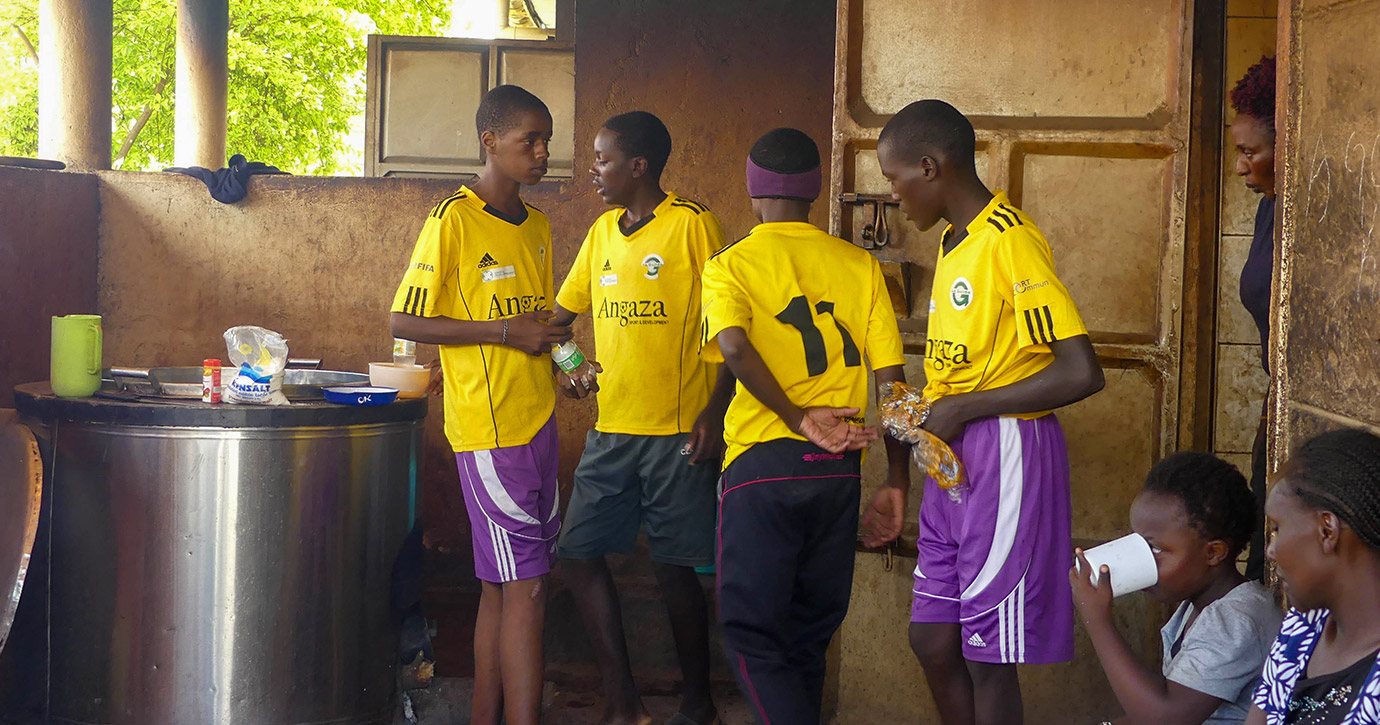
Typical and common dishes in Kenya
Ugali
…is a side dish made from maize flour and is a staple food in Kenya. It is relatively neutral in taste, used as a base and is often combined with sauces, vegetables or meat. Ugali is traditionally eaten with the hands.
Nyama Choma
…is very popular in Kenya and literally means ‘grilled meat’. It is basically a Kenyan barbecue speciality. Different types of meat such as beef, goat or chicken are grilled and served with spices.
Sukuma wiki
…is a popular green leafy vegetable similar to kale. It is often prepared with tomatoes, onions and various spices and is rich in nutrients. Just the right power food for sports coaches like you and tastes great with ugali.
Chapati
…is a flat, round bread, usually made from wholemeal flour, which is served with various meals or simply eaten with chai for breakfast. It can be sweet or savoury, depending on the region and popularity.
Githeri
…is often served as a main meal and consists of a mixture of cooked beans or legumes and maize flour. It is a nutritious dish and is often combined with other vegetables.
Matoke
…are plantains with a unique flavour. Although you wouldn’t necessarily expect to find bananas in this combination, they are often served with meat or sauce. They are simply a traditional dish in some regions and naturally taste a little different to the standard bananas from the fruit section of your supermarket.
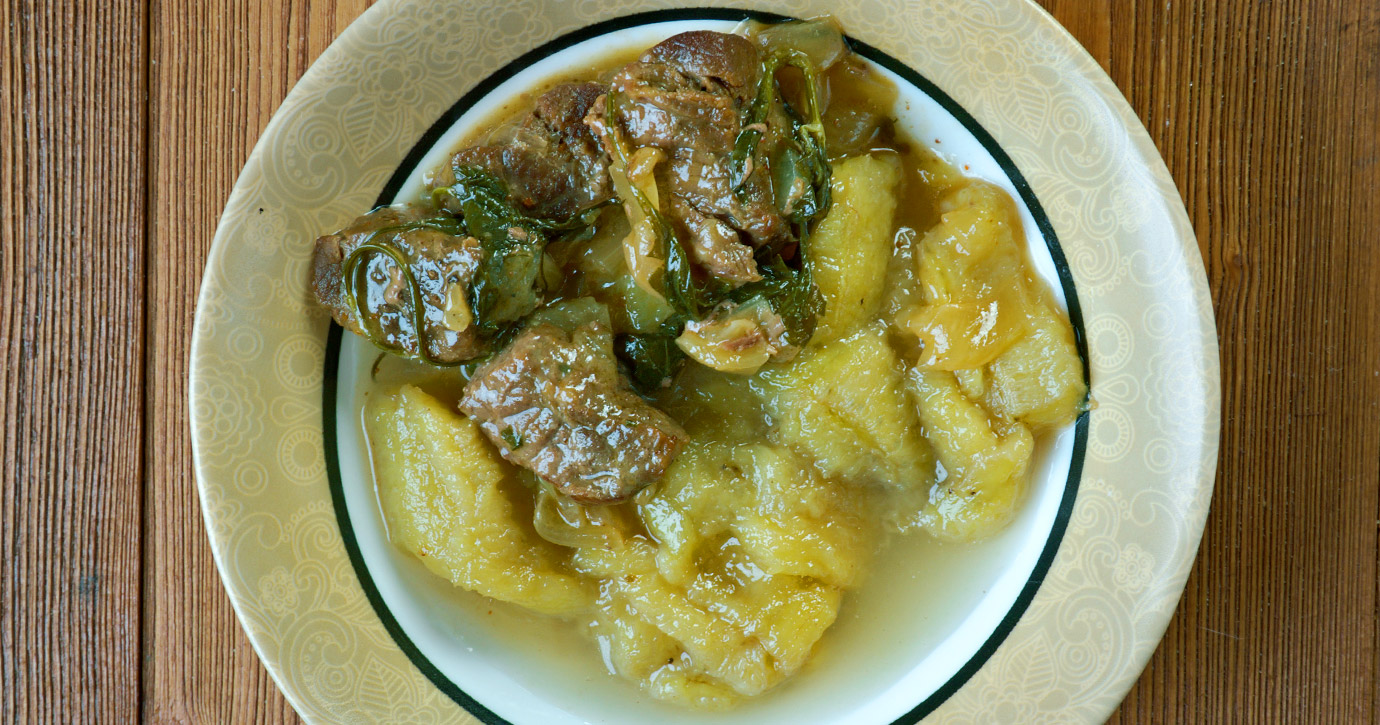
Chai tea
…Kenya’s national drink, is usually made with milk and sugar. It is often sweetened before it is served. If you don’t like sugar, tell your host politely.
Masala Chai
…is a Kenyan chai tea known for its intense flavour. Unlike regular chai tea, which is usually served with milk, masala chai is flavoured with all kinds of spices, including ginger, cinnamon and cloves. It is a popular ‘wake-up’ drink, especially in the morning.
Mandazi
…fried pieces of dough – should be tried for breakfast or as an afternoon snack. Sweet and popular.
Omena
…the “sardines” of Lake Victoria, are usually dried. They are then fried with tomatoes and onions and eaten with ugali.
Pilau (pilaw)
…is a relatively aromatic rice dish that is very popular not only in Kenya. It is traditionally made with meat such as chicken, beef or goat, vegetables and various spices.
Mutura
Depending on your stomach, taste and region – and if you can find it anywhere – you can also try Mutura. This is a traditional blood sausage made from minced tripe and cow or goat meat, stuffed into casings and often served as an appetiser at festivals or events. It is topped with cooled blood, seasoned with chilli, rosemary, onion and other herbs and grilled over charcoal.
As a volunteer, you will have to do without luxury goods, especially in rural areas. Dairy products are also not common in many households due to the heat and lack of refrigeration.
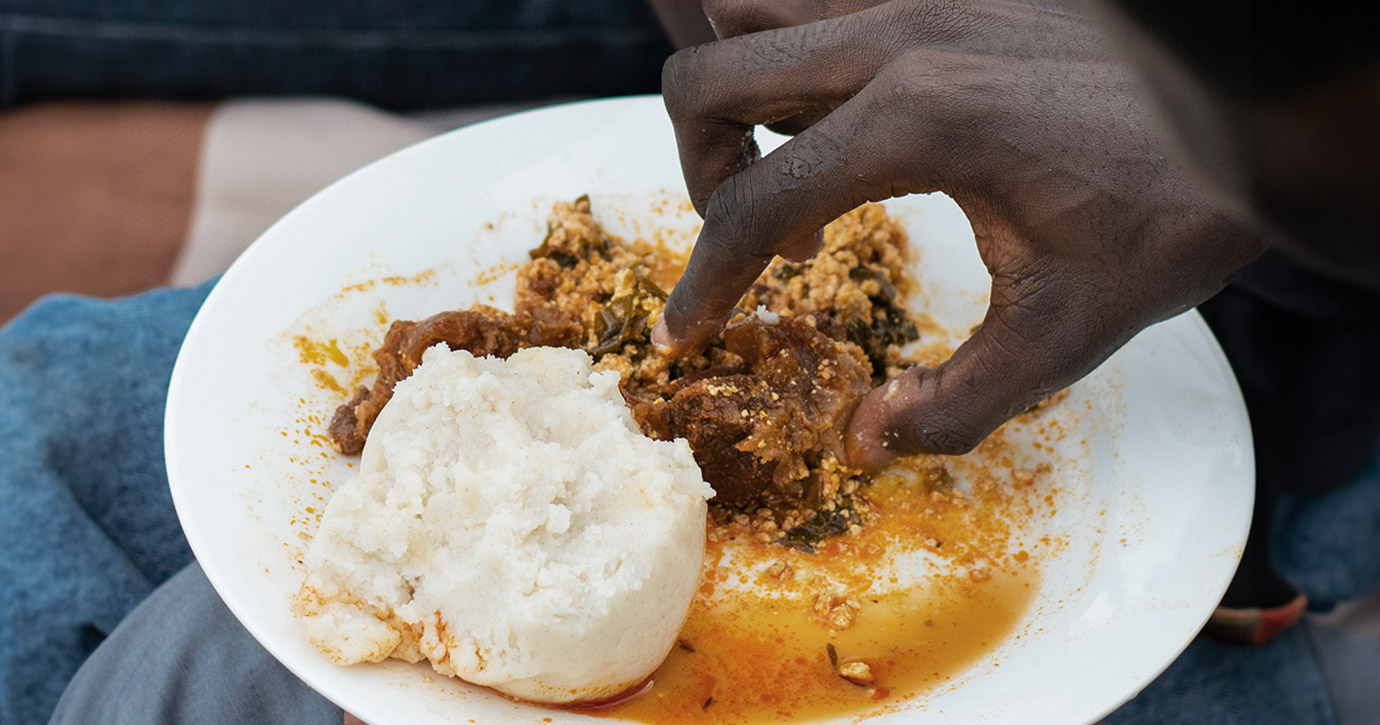
Street food
Start by asking your host family or project colleagues for their own recommendations of popular street food stalls.
As a volunteer, you will generally have the best experience in places that are frequented by locals. However, popular does not always mean good, as price is also a factor. However, the proof of the pudding is in the eating. So use your common sense and always look for stalls where the food is freshly prepared, the ingredients are fresh and the place looks clean. This will minimise the risk of food poisoning.
As a lot of food in Kenya is eaten with your hands, even the smallest street food stall will have facilities to wash your hands. As running water is not always available, water from a jug or bottle will be poured over your hands and collected in a bowl. Make it a habit to wash your hands before and after eating, and take a small, portable hand sanitiser with you.
Budgeting for a longer stay volunteering in Kenya
The cost of living varies depending on the region where you are volunteering. In addition to food and accommodation with your host family, you will have other expenses. For example, you will need to pay for mobile internet, public transport and, of course, if you want to buy something at the market.
Mobile connection
Mobile Internet is widespread and generally well developed. There are several mobile phone operators offering a range of data packages, from prepaid to contract. The leading providers are Safaricom, Airtel and Telkom. Safaricom is the largest mobile operator, has the widest coverage and is often the most reliable choice.
It is recommended that you obtain a local SIM card. Your project partner will usually be able to help you choose and obtain a local SIM card. As you will usually spend a limited amount of time abroad, pre-paid data packages are a good option for you. Not only are they often cheaper, but they are also flexible as there is no minimum contract period and you can top-up as and when you need to. You can top up at airports, mobile phone shops and even small shops. In larger cities and public places, you may be able to get free Wi-Fi access. For example, in hotels, restaurants and cafes.
Note that mobile network reliability is an important consideration, especially in rural areas where your project may take place.
Food & Supermarket
Of course, the cost of food can vary depending on where you are and your personal preferences. Local markets, for example, are a great way to save money, buy fresh and affordable products and discover local specialities. And the markets aren’t just for shopping, they are often cheap and tasty places to eat. Go to the market with your host family and ask about the products and prices. Next time you’ll be able to do it on your own.
Compared to other African countries such as South Africa, it is often cheaper to cook at home than to eat out. You can also try your hand at Kenyan cuisine.
There are several chains of supermarkets in Kenya. Prices are lower than in Europe, depending on the product. Do your research first as local products are often cheaper while imports and specialities can be very expensive. Tuskys is one of the supermarket chains with many branches in different cities, Naivas is the most widespread with a large selection of products. Chandarana Foodplus is known for its higher quality products and has several branches in Nairobi and especially in the cities. Carrefour is an international supermarket chain.
In general, the cost of living in Kenya, as in other African countries, is often lower than in many European countries, with local products usually cheaper and imported goods more expensive.
It is customary to negotiate prices, especially at markets. The best way to learn this is from your host family. Remain polite and friendly to get a fair price, even as a foreigner. Always ask your colleagues and your host family about the different prices so that over time you get a feel for fair prices and are not taken advantage of as a ‘mzungu’ (foreigner).
Public transport
Public transport is probably the cheapest way to get from A to B in Kenya. Find out what you need to know in the next section.
And please remember that wasting food is not appreciated in Kenya, so plan ahead and only buy what you will need later.
Getting from A to B without stress: tips for travelling by public transport
First things first: Kenyans drive on the left. Although Kenya has a well-developed transport system, you will (have to) develop a certain understanding of traffic and public transport over time. You will learn to negotiate, to be flexible and to accept that road conditions vary greatly and that rules can be ‘flexible’.
Matatus
Matatus, or minibuses, are an affordable means of transport, as in other African countries. Matatus will take you from town to town or within a town. They are often the most “adventurous” form of public transport, as they are sometimes in poor condition. Especially in rural areas, matatus are the main means of transport and are often overcrowded.
However, if you are travelling a route daily or more often, you should know the fare in advance, as there are often no fixed fares. In rural areas, fares are usually negotiable. Ask your host parents or project leader about the local fare.
Also find out which buses run in which direction. Depending on the route, you may need to change matatus. If you have already paid the final fare, the first driver will usually pay the driver of the next matatu. Make sure this is the case. However, always be prepared for surprises and try to be flexible and tolerant – even if it is not always to your advantage.
It is also important to make sure you get on the right matatu, especially if you have to change buses. Drivers sometimes want to make a deal or lure you into the wrong vehicle. Check the directional signs on the matatus or ask other passengers to make sure you are in the right vehicle.
You should also have enough cash in your pocket, as cards are generally not accepted on public transport such as buses, minibuses or motorbikes. Also make sure you have enough small change, as it is often difficult to get change.

Boda bodas
Boda bodas are small motorbike taxis and a quick way to meander through city traffic. They are also often the fastest means of transport in the countryside. If you want to use them often, learn how to negotiate and clarify the price before the trip to avoid misunderstandings. Again, the best people to talk to about this are the people in your project or your host family.
Use common sense about the safety of the bode bodas. Some riders wear helmets, which (in theory) indicates a more attentive rider, or you can look at the bike and choose a rider whose bike appears to be in good condition. However, often the rider will not have a helmet for you, let alone protective clothing, so you are always taking your own risk, which you must assess and ultimately bear.

Public buses
Public buses are available mainly in the larger cities. There are different companies and a great variety, especially in Nairobi. Some buses will give you the feeling of being on a party bus, as they often have loud music and are sometimes equipped with screens and brightly painted. Ask your host family and project leader which buses you can and should take.
There are timetables, but depending on the region and the chaotic traffic in big cities like Nairobi, they are often not adhered to. So if you have an appointment, always leave yourself plenty of time. Fortunately, fares are fixed and affordable. Nevertheless, it is advisable to find out in advance about routes, fares, timetables and, above all, departure points.
Buses in the countryside often have fixed routes and stops, but can still depart from different locations. So make sure you know exactly where you want to go and ask before you get on. Also be flexible with your time as delays can occur due to road conditions, especially in rural areas.
Taxis
Paying cash in taxis is also common. Again, negotiate the fare in advance as taximeters are not always used. The taxi should have a clearly visible logo and the driver should be licensed. Always choose official taxis from companies you know, or ask your host family about local providers.
Bicycle taxis
In some regions, such as Kisumu, there are still bicycle taxis. However, they are not as common as they used to be. However, if you need to travel a short distance and see a pedicab, give it a try and make yourself comfortable on the driver’s padded seat.
E-hailing
Kenya also has e-hailing services such as Uber, Bolt and Little Cab, which can be booked through apps, especially in major cities such as Mombasa, Nairobi and Kisumu. You should check availability on the app before planning your route, as this is heavily dependent on infrastructure and demand in the area. E-hailing services are generally a safe and reliable alternative to other forms of transport.
Tuck-tucks
Tuck-tucks can often be found alongside taxis in coastal regions and smaller towns. These quirky motorised tricycles are always worth a try. Again, ask for the usual fare and learn to negotiate if necessary.
Alcohol and drugs in Kenya
Kenya has strict laws regarding the consumption of alcohol and drugs. As a sports trainer spending time in Kenya, you should of course know and respect the local laws. Out of consideration for your host family, your project and your role as a volunteer in sports and youth projects, you should also be very careful about consuming alcohol.
This does not mean that alcohol is prohibited or not tolerated. There are public places where the consumption of alcohol is forbidden and others where it is very restricted, especially in rural areas. The situation may therefore vary from place to place.
In general, the purchase and consumption of alcohol is permitted from the age of 18. Alcohol may only be purchased from licensed outlets and consumed only in places that have the necessary licence. Alcohol consumption in public is also often controlled.
Important: Driving under the influence of alcohol is prohibited and will be severely punished. Exceeding the drink-drive limit can result in heavy fines and even imprisonment. In addition to the legal consequences, there are also social consequences, such as stigmatisation in the family or community.
Your stay, especially as a volunteer sports coach, should be characterised by respect and responsibility, and you should be a role model for the children and young people you work with.
Drugs, even if they are culturally accepted, such as chewing ‘khat’, and excessive alcohol consumption can damage not only your reputation in the community and with your host family, but also the reputation of the project and future volunteers. It is important to think about your role as a volunteer in advance and to be aware of your responsibilities.
As a volunteer in a sports project, you have the opportunity to set an example and promote a healthy lifestyle. Alcohol and drugs are not part of this.
Possession and use of illegal substances is prohibited in Kenya. For example, the possession of illegal drugs such as cannabis, cocaine and heroin is strictly prohibited in Kenya and carries severe penalties. You should therefore avoid the use of drugs of any kind.
From mainstream to local speciality: Kenya's religious diversity
Kenya is extremely diverse in terms of religion and belief, with Christianity and Islam being the two dominant religions. There are also many other traditional African faiths with their own rites and traditions, as well as smaller communities that follow Hinduism. Broadly speaking, the eastern part of Kenya is more Muslim and the western part more Christian.
If you attend religious events or festivals with your host family or in your community, you should be respectful and open in the interest of harmony and avoid judging other religions or showing prejudice yourself. Religion can also be a sensitive topic in conversations and discussions in Kenya. Either avoid getting involved or express yourself diplomatically to avoid potential tensions.
Also be aware of possible implications for you and your appearance, which may include religious beliefs.
Despite the high temperatures, clothing that is too revealing may not be accepted. Be aware of what type of clothing, such as covered shoulders or knees, is desired and accepted in your host family, community and project. Even if extensive sunbathing or jogging without a shirt is accepted in your home country, it may be viewed negatively or even misunderstood in a more traditional and conservative environment.
It is important to find out about the project’s rules of behaviour and possible dress codes. Be tolerant and adapt. This will also create more acceptance for you and your work.
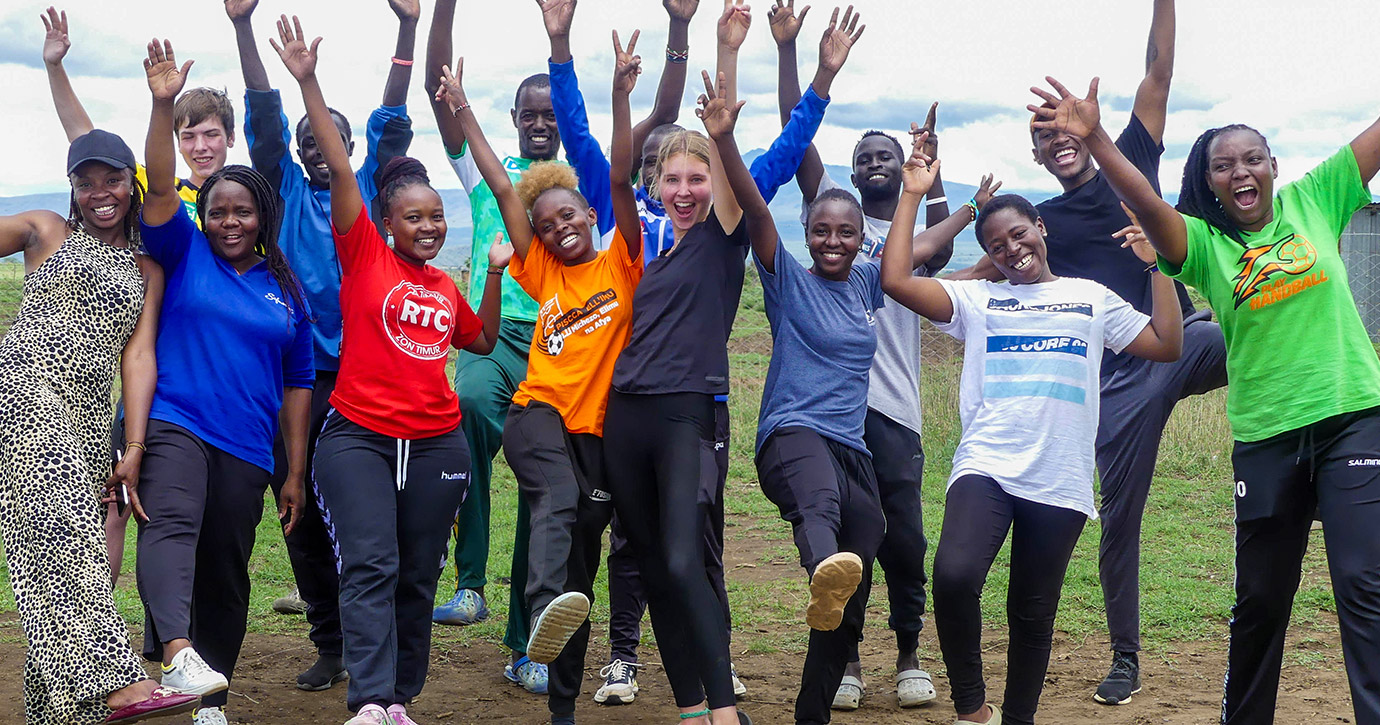
As in most Christian regions of the world, Sunday is a traditional day of rest in Kenya. In Muslim areas, Friday may be particularly important as a day of prayer. Depending on where you are or where your project takes place, you should plan your activities accordingly. This also applies to the Muslim fasting month of Ramadan, during which shops and restaurants may have restricted opening hours.
Here are some additional tips:
- It is best to ask permission before visiting a religious site. In some religions, only members of that religion are allowed to enter certain places or buildings.
- In terms of dress code when visiting religious sites, the same applies in Kenya as anywhere else in the world: make sure you dress appropriately and respectfully. Shoulders, knees and other “sensitive body parts” should be covered, especially in mosques and churches.
- Behave with restraint during ceremonies, especially taking photographs during a ceremony can be seen as disruptive. You may want to look around to see how other participants are behaving, or simply ask about the rules in advance.
- Even if you are of no faith or a different faith, try to accept an invitation to a religious ceremony or ritual. Only if you don’t feel uncomfortable, of course. Be grateful for the hospitality and the “free” insight into the local culture and rituals of your community. Otherwise, politely decline.
Intimacy and sexual behaviour as a volunteer in Kenya
As an international volunteer, you should be aware of the cultural differences in how sexuality is viewed in Kenya. Kenyan society is relatively conservative when it comes to sexual issues. Talking openly about sexuality can be considered inappropriate, as can religious topics, so be careful how you behave and what you talk about.
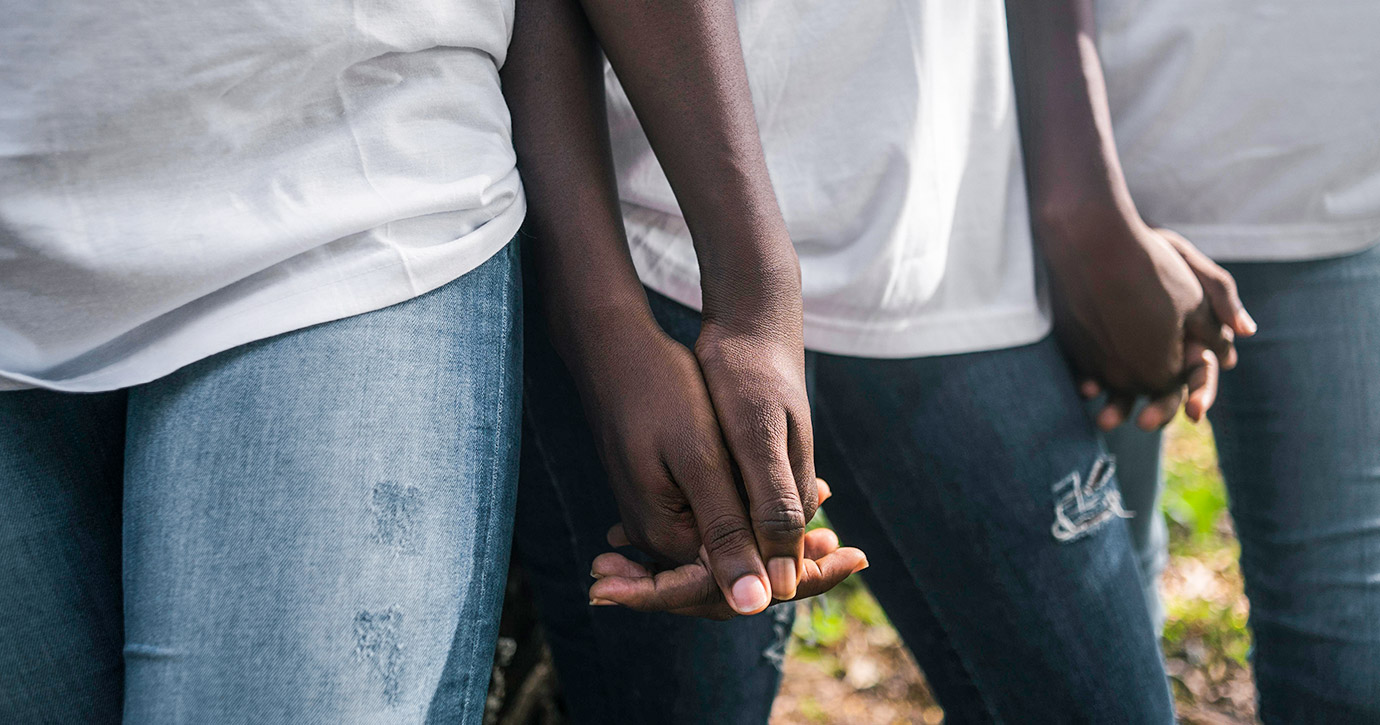
Kenya has clear laws governing sexual behaviour. This starts with public displays of affection, which are often considered inappropriate in society. To avoid misunderstandings or even negative reactions, you should refrain from kissing and other intimate behaviour in public.
This is especially true when it comes to homosexuality. Homosexuality is illegal in Kenya and is considered a social taboo. This also applies to the LGBTQ+ community. It is therefore advisable to be very careful if you publicly admit to it or even engage in such behaviour. When choosing a country to volunteer in, you should consider these issues as well as your own tolerance or understanding of certain views.
Not everyone has the same access to sex education or health services that are able to deal with, or even inform about, these issues. Furthermore, some communities have their own sexual customs and traditions, which in turn play a local role. Be aware of this and act accordingly. Misbehaviour may not only have (legal) consequences for you, but may also backfire on your host family.
Crawlies and co: General health tips
In Kenya you can expect beautiful scenery and an abundance of wildlife, whether on the coast or in the highlands. Animals often live in the wild and not only the large animals such as hippos are exciting to watch, but can also be dangerous. Make sure you are aware of any health risks associated with the flora and fauna in the region where you are volunteering.
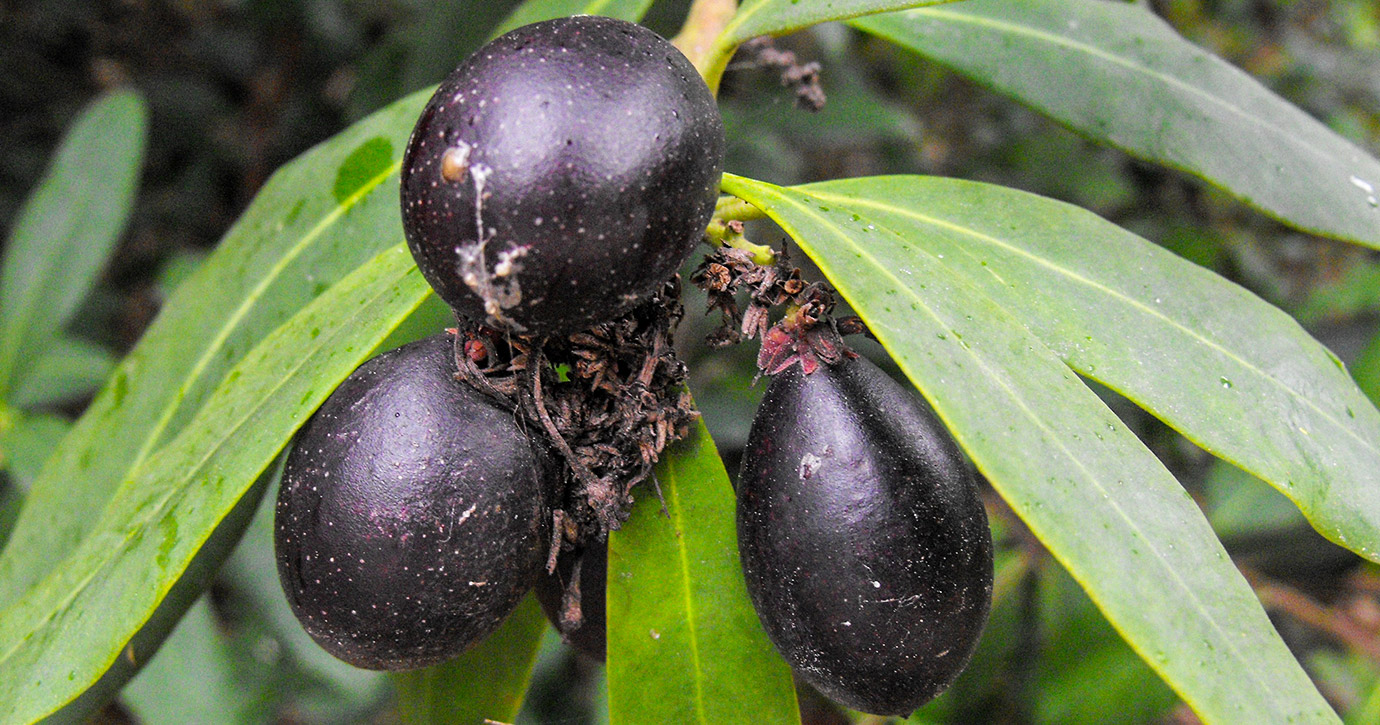
It is not only important and necessary to find out about certain health risks in advance, but also to seek advice from your host family and mentor once you have arrived.
Outside of Nairobi and other major cities, medical care may be technically, logistically or hygienically problematic, or there may be a lack of trained specialists. Find out about malaria, the toxicity of certain plants, insects and reptiles, and communicable diseases. Be prepared and take a well-stocked first-aid kit with you.
Your health should always be a priority, not only for yourself but also for the smooth running of your project.
Malaria
Apart from major cities such as Nairobi, some areas in the central provinces or in the highlands above 2500 metres, Kenya is considered a malaria risk area all year round.
Depending on your project location, you should consult your doctor or a tropical institute for advice on malaria prophylaxis. You should also consider taking the prophylaxis throughout your stay. The use of insect repellent with a high DEET content is recommended as general protection. Especially in the evenings.
You may also want to bring a travel mosquito net, which you can use flexibly both in your host family and when travelling.
Vaccinations
Before you decide to volunteer for an extended period of time, you should also check that you have all the recommended vaccinations. Vaccinations against Hepatitis A, Diphtheria, Polio and Yellow Fever are generally recommended, as well as Hepatitis B, Typhoid, Rabies and Meningococcus for longer stays.
Detailed advice and information can be obtained from the Tropical Institute or your general practitioner. No vaccinations are required for entry into Kenya. However, if you are arriving from a third country where yellow fever is endemic, you will need to show proof of yellow fever vaccination.
Also note that certain vaccinations, such as yellow fever and rabies, are subject to waiting periods. Be sure to prepare for your stay well in advance.
Flora and fauna
Despite the beauty of many of Kenya’s landscapes, there are, of course, poisonous plants. They may grow in your immediate surroundings or you may come across them on a hike.
In general, avoid eating wild berries and fruits and ask your host family for advice. Also be aware of potentially dangerous insects such as ants, spiders or scorpions that live in the area and can be painful to encounter.
There are also a number of snake species found in Kenya. Most are nocturnal and shy rather than aggressive, although there are some venomous species such as the common puff adder or the green and black mamba.
Find out more about general health tips for your successful assignment as a sports volunteer.

